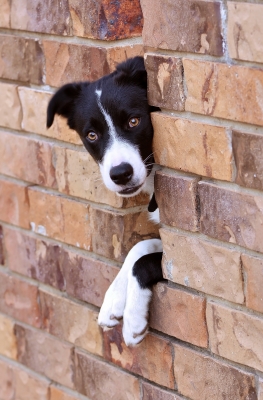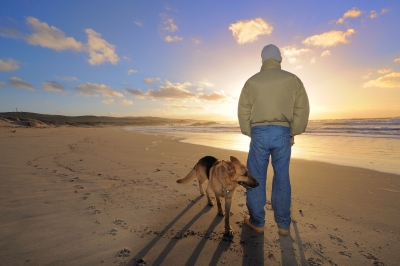
Adopt a pet: |
Name: Jack - Breed: Jack Russell - Age: 3 years - Gender: Male |
| Jack is about 3 years old. We are hoping he will find his forever home soon. He is typical terrier always up to mischief and full of energy. He loves his toys and going for a walks and would love a home where he will get loads of attention and love. Click here to find out more about Jack and the rest of the animals available to adopt! |
Dog tips:
The main needs of a dog are:
If you are choosing a puppy- Do not take from the litter until it is at least 6-8 weeks old. Make sure that it is well and can eat.
Decide whether you want a male or a female pup. Either way neutering or spaying is highly recommended. This is best for the dog and the owner! Also it avoids unwanted litters of puppies, many of which will end up in Dog Pounds where most are destroyed.
Where to get a dog: Sharpeshill Animal Sanctuary has lots of lovely dogs and puppies just waiting to be chosen by new owners!
If purchasing a puppy, make sure that the pups are well cared for and are seen with their mother. They should be kept in good condition and should be healthy and happy. Always check whether puppies have been vaccinated and if not, make sure to have your puppy vaccinated as soon as possible.

When You Get a Dog
Have the dog vaccinated as soon as possible and checked for fleas and worms. Always make sure that your dog is wearing a collar and identity disc with your telephone number. If possible have the dog micro-chipped at your veterinary clinic. Make sure your dog is licensed and under control at all times.
Feeding Dogs & Puppies
The rule of regular mealtimes is most important. Adult dogs are generally given just one meal a day with a possible snack in the morning or going to bed. Choose a good brand feed and feed according to the manufacturers guides. Avoid giving dogs sugar and sweets as these are bad for digestion and teeth. Chocolate can be dangerous for dogs. Always make sure that clean water is available for your dog at all times.
Puppies should be fed 4 times a day. Clean fresh water should always be available. Between 3 and 6 months, meals can be reduced to three times daily. After six months reduce to twice daily until the dog is a year old. Again there are various food brands available and manufacturer guides should be should be followed. Beware of puppies chewing items of clothing etc., they can choke or become very ill.
Training Puppies
The training of all dogs and puppies requires patience. Most dogs will try to please their owners. Dogs should be trained to come when called, walk on a lead without pulling, sit, stay and other basic commands. The voice is the main tool. The two essential words are the dog's name and "No". Always praise success. Puppies of 2-3 months old can be taken for little walks around the garden to accustom them to a collar and a lead. Owners should be aware that serious puppy training cannot start until the puppy is about 5-6 months old. If you have a difficulty you can contact a dog obedience/behaviourist in your area.
Remember: Patience and self control. Never lose your temper.
If your dog lives indoors he should have a dog bed, which should be kept clean. If your dog lives outside, he needs a warm, dry, draught proof kennel with bedding.
Handling Dogs
When lifting an adult dog, put your arms around his chest and tail as though you were carrying a lamb.
When lifting or carrying a puppy, always use both hands so that the front and hind legs are supported.
All dogs must be handled firmly, gently and quietly.

Exercise
This is the most important part of dog care. It must be adequate and regular. The amount of exercise will vary with the size of the dog, age , etc.,
Puppies should have plenty of play and rest and children should not be allowed to over-tire them.
Never exercise a dog from a car or a bicycle.
Grooming
A wide toothed comb used regularly works well and there are various types of brushes on the market. Grooming stops the coat from matting. Some dogs, particularly Old English Sheepdogs, Poodles, etc., require clipping. Otherwise their coat can become so matted that the skin can become infected and in some breeds the eyes can also become infected.
Notes for Dog Owners
Never keep a dog tethered on a chain, if your garden cannot be made secure, build a dog run/pen. A chained life is no life for a dog. He needs freedom.
Never leave your dog outdoors during fireworks or thunderstorm - many terrified animals get lost.
Bathing Dogs
Do not bath dogs unless absolutely necessary. Never bath puppies. If you do have to bathe your dog, use a recommend dog shampoo and be sure to read the instructions carefully and rinse away all traces on completion.
Regular Vaccination
Dogs should be vaccinated yearly by your veterinary surgeon, This will give protection against some of the worst diseases such as Parvo Virus. The dog should be kept away from other dogs for 3 weeks before vaccination and ten days afterwards. Most reputable Boarding Kennels will not take your dog while you go away on holiday without an up to date vaccination certificate.
Regularly worm your dog and check for flea infestation.
Make sure your dog is always wearing a collar and identity disc.
Unspayed Bitches
Bitches normally come "on heat" twice a year from about the age of six months. The period lasts for about 3 weeks and the dog must be kept under close surveillance to avoid becoming pregnant. The best solution is to have a bitch spayed from about 6 months of age onwards thus avoiding unwanted litters of puppies.
Caring for Old Dogs
If healthy, and well cared for a dog can live to a ripe old age. However, extra care should be taken of him as he grows older. He may need a special diet and his exercise should be very gentle.
If you Lose Your Dog
Start looking as soon as possible.
Put up posters with a description of the dog with your telephone number.
Contact the County Dog Pound (In county Wicklow: 0404 44873)
Contact your local SPCA
Contact other animal welfare groups/ shelters in your area.
Note
All dogs are required by law to be confined or under supervision and control. It is a legal offence to abandon unwanted animals.